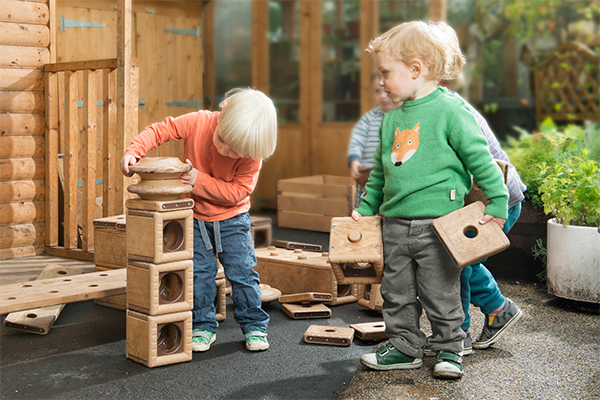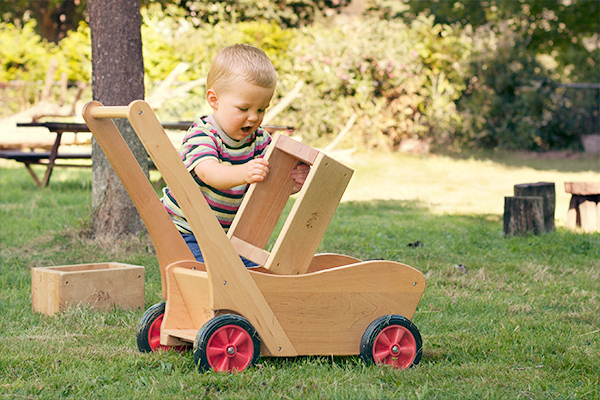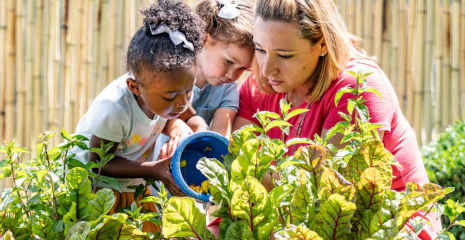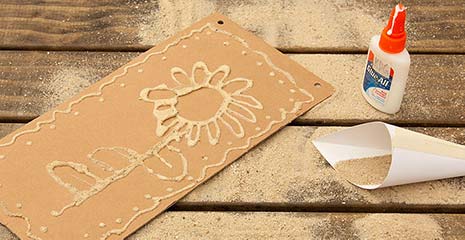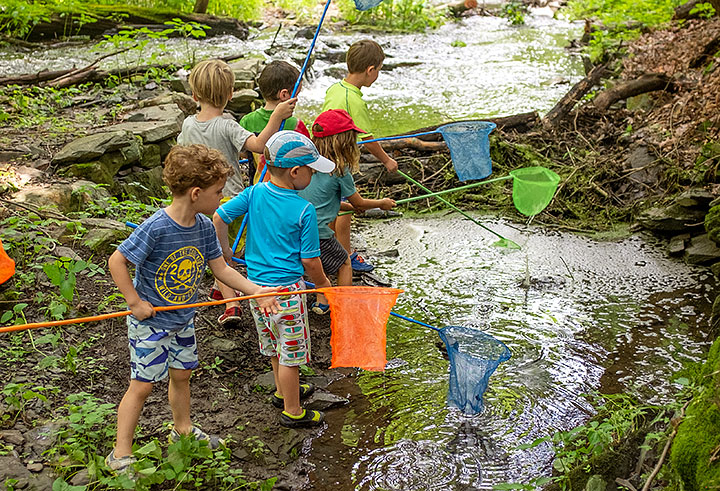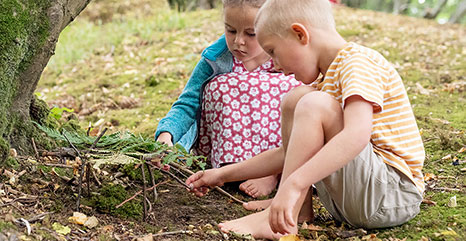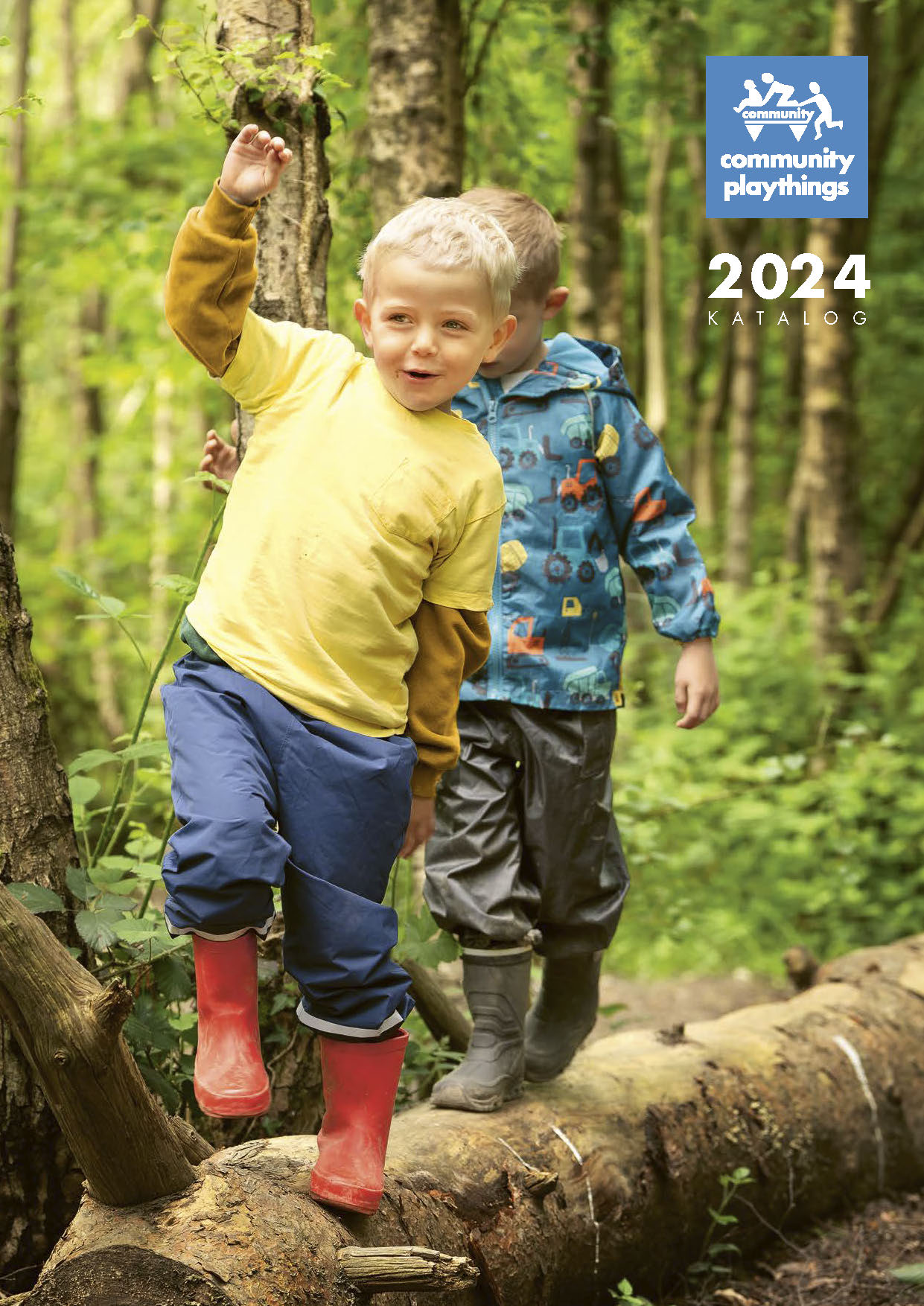The value of outdoor play
| February 2018Not all children attend well-equipped nurseries with exciting and challenging outdoor areas. Some go to village halls or community centres with little or no access to an outside area, some go to nurseries attached to schools and some children play in someone’s front room! But all early years settings should be providing outside play opportunities regardless of their facilities.
Providers must provide access to an outdoor play area or, if that is not possible, ensure that outdoor activities are planned and taken on a daily basis (unless circumstances make this inappropriate, for example unsafe weather conditions). Providers must follow their legal responsibilities under the Equality Act 2010 (for example, the provisions on reasonable adjustments). 2014 Statutory framework for the EYFS Section 3.58
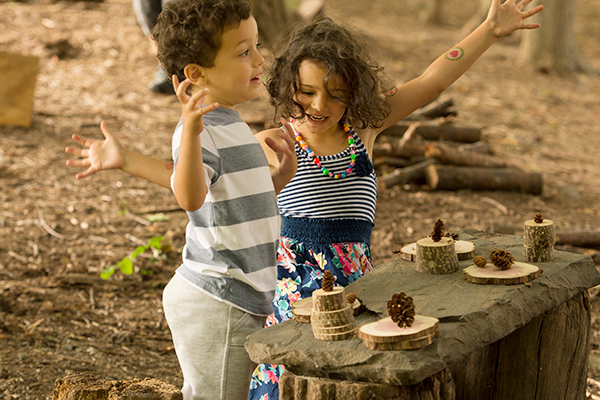
All groups of children are different, but in every group there will be some children who learn best when they are outside. To make it easier for these children to learn, you need an environment that is safe, inviting, stimulating and challenging. No matter how small the space, it can be made interesting, even if the equipment has to be set up and stored away each day. Those settings that have no outdoor space available to them could think about investigating the local park, woodland area and immediate surrounding area.
Ideally, the children should be able to move from the indoor to the outdoor areas with minimum fuss, but this is not always possible. Some settings have areas available to them but they are not attached to their indoor space. Careful planning is the answer. It may be that groups of children go to the area at one time. This is not ideal and care must be taken that all of the children are given equal access; this means those that want to go outside can rather than “it’s your turn now so you must go”.
In many settings children go outside only when the weather is warm and sunny. This is often not the children’s choice but the adult’s! Children don’t notice the weather and will choose to go outside even when it is cold and rainy. If they are equipped with wellies and macs they should be outside. How else will they have the experience of just being in the rain/smelling it/seeing puddles form and jumping in them/ watching the stream of water coming from the downpipe/ wondering where all the water goes?
Outdoor play is as important as indoor play. Space, fresh air, freedom and time are essential for children’s emotional, social and personal well-being.
Outdoor play is vital because:
-
It enables children to become independent learners. Children should enjoy learning and you can help them to develop that all-important disposition to learn by providing them with an environment which they can explore, modify and use themselves. If they need to keep asking you for equipment or resources you are taking away their independence.
You can invite the children to make choices, follow their own interests and get involved with what they are doing. For some children the outdoors is where they are the most comfortable.
-
It encourages social and moral development. Outdoor play presents opportunities for exploring and using large equipment. This involves children in taking turns, sharing, cooperating, negotiating and talking to each other – all essential skills when interacting with other people in a positive way. They will establish relationships and begin to understand that others have feelings and emotions, for example seeing friends become upset when hurt, and being able to empathise.
-
It encourages children to grow in confidence and self-esteem. Some children appear more comfortable with themselves and others when they are outside. They play with confidence in the knowledge that they can be noisier and more boisterous and they do not feel as restricted as they may do indoors. Confidence and self-esteem are crucial for children’s well-being and ability to learn. Those children who are given opportunities to achieve success, whether it is through being able to be good at climbing or being leader in an imaginative game, are the most likely to enjoy satisfaction and a feeling of well-being. They will want more.
-
It promotes and enables physical activity. Joining in physical activity can have huge benefits for young children. It can help them to cope with success and failure in a supported environment and to develop a sense of fair play.
It makes a unique contribution to the development of the whole child and research evidence suggests there is a link between physical activity and academic achievement, as well as an improvement in children’s behaviour and the development of social interaction (Using Physical Activity and Sport, DfES 2000).
Giving children the choice to be outside is a powerful tool. Conflicts can be resolved more easily and imaginative, well-planned, challenging areas for children with diagnosed behavioural problems can often result in calmer, more interested children.
We all know young children need space, as movement is central to their development and learning. Their motor development is at a crucial stage and they need to be given opportunities to strengthen their large muscles to improve the control of their smaller ones. (To write with control they will need to develop their arm and shoulder muscles as well as their hand and finger muscles.)
-
It allows children to take risks. Children’s safety is of paramount importance and you need to be mindful when planning the outside area but too many restrictions can reduce choice and make children dependent on adults. Children will take risks in their play that they are comfortable with because they set their own agenda.
-
It allows time to consolidate skills learned. Children need time to repeat, mimic, and try once more the skills they have been learning. Sometimes this may be through giving them the time alone. At other times it may be through providing for the same skills with a wider range of activities and experiences that may be bigger, noisier, messier than those offered indoors.
Good practice
Whatever facilities you have available, good practice in outdoor play means that the children are in the most effective teaching and learning situation. They will be given challenges that are both exciting and stimulating so that they want to find out more. The adults will be supporting and intervening at appropriate times because they have observed the children and know at what stage to intervene in order to carry them forward. (Sometimes the children are best left to do this for themselves.)
Good practice means:
-
That, if possible, the children can go outside whenever they need to.
-
Planning what the children will experience so that their learning is seamless and interlinked and enables them to join up their thinking.
-
The area is so organised that the children understand the systems, for example where to get equipment if they want it, what to do if they need help.
-
That the children themselves can change and modify the area to suit their methods of play at that time.
-
Having an area that is versatile so that the children can look forward every day to something that is stimulating for them. Sometimes if children are working on a project they do not want to put it away at the end of the day or session. Being versatile means being able to accommodate their needs and leaving it so the children can go back to refine it until it has run its course.
-
Having committed staff and helpers who understand the value of children playing outside.
Excerpted from Outdoor Play, by Sue Durant. Published by Practical Preschool Books. Used with permission of the publisher. Get the whole book for numerous great outdoor play ideas which support children's learning within the context of the EYFS.

